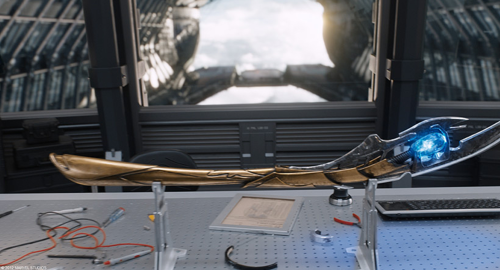Let’s tell a story about blindness, interactive creativity, and you.
Once upon a time, video game music depended on set compositions looping over and over, like the music in the earliest Mario games. Then, in 1987, a game you’ve probably never heard of changed video games forever. RBI Baseball simply did something new: the music changed when players reached first base.
Boom! Enter the world of “plot-change” sounds. In 1980, before RBI Baseball, Pacman had something similar to dynamic sound by raising the pitch of the music with the intensity of the action–as the game became more difficult, the pitch rose — but never before RBI Baseball did the music change in direct response to a single “story event.” Now, when you approach the Witch in Left for Dead II, you can hear it. When Link opens a treasure chest, or you win a Final Fantasy battle, the plot point triggers a sound. Settings change sounds, too, like when you walk into a new Zelda dungeon, or when something bad’s about to happen in a survival horror game.
We even have an element of “character-theme” sounds in Dead Space 3, where each new enemy on the field triggers an algorithm of chaotic violin squeaks and cacophonous musical chirps so each player experiences a slightly different set of sounds. That’s the heart of adaptive music. Now, what if instead of just producing a feeling, each part of the music has practical gameplay applications? What if each sound means a different character? Could you encode character location and combat into soundtrack?
In other words, what about an adventure game you could play without seeing?
Keep dreaming with me: Click here! Click here please, and leave a comment over there, not here!
http://insertquarterly.com/
Once upon a time, video game music depended on set compositions looping over and over, like the music in the earliest Mario games. Then, in 1987, a game you’ve probably never heard of changed video games forever. RBI Baseball simply did something new: the music changed when players reached first base.
Boom! Enter the world of “plot-change” sounds. In 1980, before RBI Baseball, Pacman had something similar to dynamic sound by raising the pitch of the music with the intensity of the action–as the game became more difficult, the pitch rose — but never before RBI Baseball did the music change in direct response to a single “story event.” Now, when you approach the Witch in Left for Dead II, you can hear it. When Link opens a treasure chest, or you win a Final Fantasy battle, the plot point triggers a sound. Settings change sounds, too, like when you walk into a new Zelda dungeon, or when something bad’s about to happen in a survival horror game.
We even have an element of “character-theme” sounds in Dead Space 3, where each new enemy on the field triggers an algorithm of chaotic violin squeaks and cacophonous musical chirps so each player experiences a slightly different set of sounds. That’s the heart of adaptive music. Now, what if instead of just producing a feeling, each part of the music has practical gameplay applications? What if each sound means a different character? Could you encode character location and combat into soundtrack?
In other words, what about an adventure game you could play without seeing?
Keep dreaming with me: Click here! Click here please, and leave a comment over there, not here!
http://insertquarterly.com/



